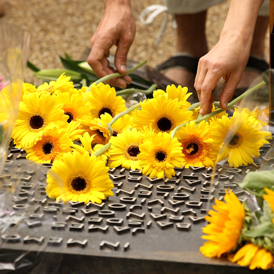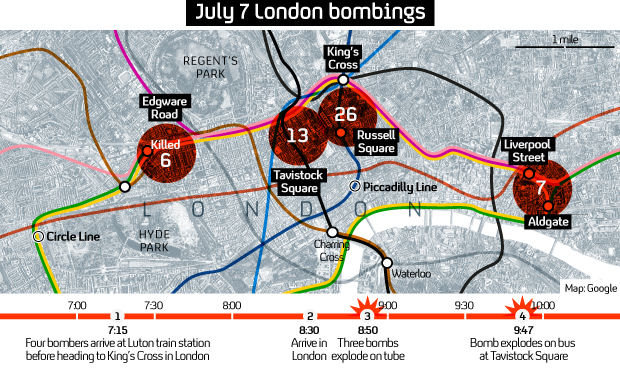July 7 inquest: coroner to announce verdict
The coroner at the inquest into the deaths of 52 people killed in the July 7 London bombings, is due to announce a series of recommendations for preventing future deaths.

Relatives of the victims sat through five months of often shocking evidence about the planning, execution and aftermath of the suicide bombings on the London transport network on July 7 2005.
Fifty-two people died when three suicide bombers detonated their devices on the London Underground, while a forth blew up a bus packed with commuters.
Many of the relatives and witnesses of July 7 have waited nearly six years for the inquest to give answers about how their loved ones died and whether deaths could have been prevented.
They called on the coroner to use her “Rule 43” powers to make 32 recommendations, including nine relating to an alleged failure by MI5 and the police to stop the atrocities taking place.
Lady Justice Hallett is expected to record unlawful killing verdicts for all 52 victims who died in the attacks on three Tube trains and a double-decker bus.
She will also make a ruling on whether a separate inquest should be held for the four bombers.
Six stories from the inquests
As the inquest heard its final evidence in March, Channel 4 News spoke to six people whose lives were individually changed by the London bombings.
After giving evidence at the subsequent hearings, the six witnesses told Andy Davies about what the hearings meant, and how it bought a sense of closure for some.
Click here to read their stories and watch a special report on the July 7 inquest.
The families’ proposed recommendations include improving communications in the emergency services to avoid misunderstandings which could cost lives.
The coroner hit out at baffling management gobbledegook during the inquest on hearing that London Fire Brigade used the phrase “conference demountable unit” to describe a portable incident room.
“It’s been an ongoing theme for me throughout this, that we need to say to people: Cut the jargon,” she said.
The bombings carried out by Mohammed Sidique Khan, 30, Shehzad Tanweer, 22, Hasib Hussain, 18, and Jermaine Lindsay, 19, are the worst single terrorist atrocity on British soil. As well as killing themselves and 52 others, they injured over 700 people.
The inquest at the Royal Courts of Justice in London began in October and heard oral testimony from 309 witnesses before closing its evidence sessions in March.
